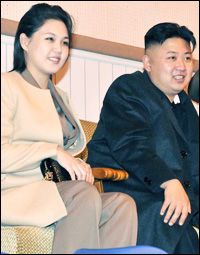
North Korea said Monday it would begin celebrating Mothers’ Day in another move by the Stalinist state to present a softer image to its citizens.
Pyongyang’s Korean Central News Agency (KCNA) said the special day would be established at the “4th National Meeting of Mothers,” an event being held in the capital.
“This is the highest citation and honor bestowed by the Workers’ Party of Korea and the country upon the mothers who gave birth to sons and daughters and have brought them up with their warm patriotic loyalty and love for the younger generation,” KCNA said.
The English-language report did not specify on which date the special day would be held.
The announcement is the latest in a series of cosmetic changes to modernize the country under Kim Jong-un, despite significant economic constraints.
The report added that the number of mothers raising three or more children had “reached hundreds of thousands” and that “not a few women are bringing up orphans.”
The people-friendly approach under Kim seeks to differentiate him from the reclusive style of his father, late despot Kim Jong-il and has prompted favorable comparisons with his grandfather and country founder Kim Il-sung.
The regime has been busy to create the impression of better times since the new leader vowed to improve people’s lives in April. The efforts have included renovations in the capital city including new apartments and stores, as well as the opening of leisure facilities such as a skate park and a dolphinarium.
Like other socialist states, North Korea has passed laws on gender equality. However, scholars say such efforts quickly eroded. As women took on the double-burden of household work and participation in the workforce, many became marginalized in a patriarchal society.
Some scholars argue that some women in the North have used recent marketization to catapult them toward better economic standing, saying such women are the main players in the country’s informal markets.
Concerns persist over the human rights of North Korean women. Activists say that domestic abuse against women is prevalent and raise particular concerns over reportedly harsh punishments given to female defectors who are repatriated.
Despite such conditions, the regime has canonized female “revolutionaries” such as Kang Ban-suk, the mother of Kim Il-sung, and Kim Jong-suk, the mother of Kim Jong-il. <The Korea Times/Kim Young-jin>




